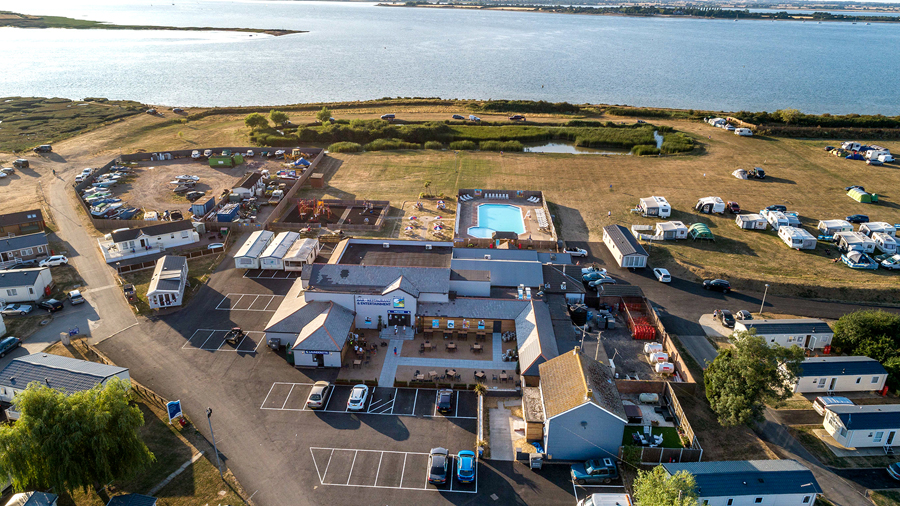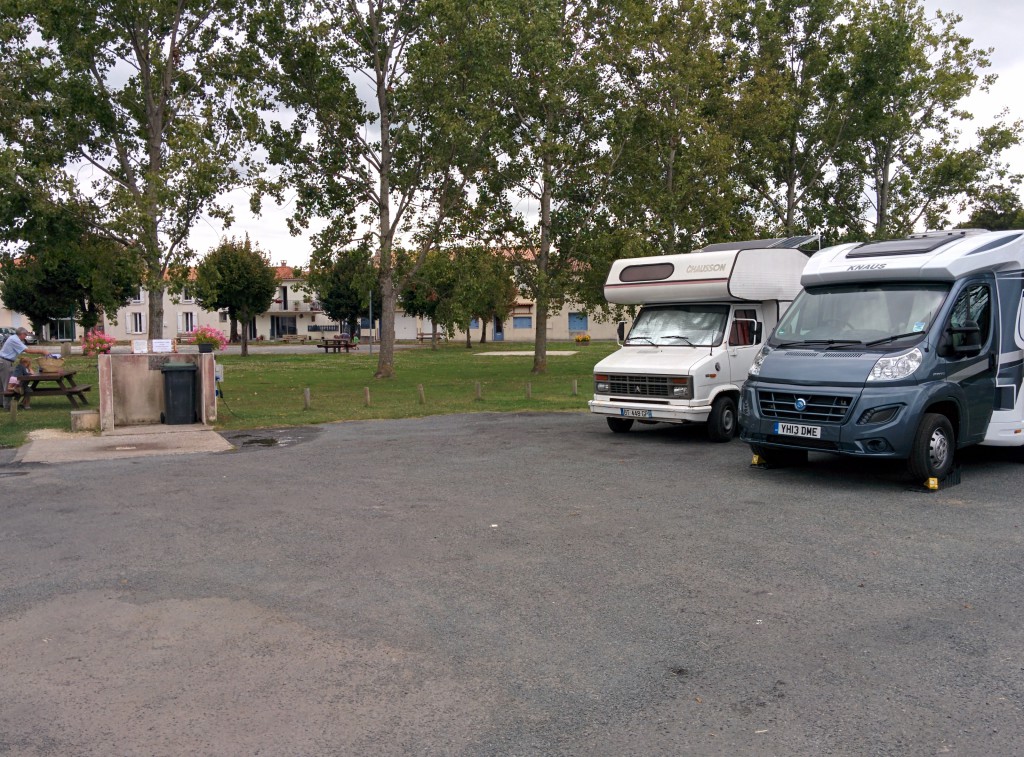You are planning a motorhome road trip to the UK and Ireland? Would you like to get up to speed on current legislation so you can make the most of your trip? Find out everything you need to know about motorhome regulations in the UK and Ireland in this article!
Motorhome regulations in the UK and Ireland: driving and parking
Driving a motorhome
What license do I need to drive a motorhome?
In both the UK and Ireland, you can drive a motorhome with a standard car license. However, the type of motorhome you are allowed to drive will depend on three conditions: the date you obtained your license, the weight of the motorhome and your age.
Anyone with a standard driving license can drive a motorhome weighing up to 3.5 tonnes.
On the other hand, only those who passed their driving test before January 1, 1997 will be able to drive a vehicle weighing up to 7.5 tonnes, since category C1 is entered on their document.
Is there a special Highway Code for motorhomes?
In the UK
If your vehicle weighs less than 3.5 tons, speed limits are the same as for cars, i.e. :
30 mph (48 km/h) in towns and cities
60 mph (96 km/h) on single carriageways
70 mph (112 km/h) on dual carriageways and freeways.
However, if your vehicle weighs more than 3.5 tonnes, the speed limits are different:
30 mph (48 km/h) in towns and cities
50 mph (80 km/h) on single carriageways
60 mph (96 km/h) on dual carriageways
70 mph (112 km/h) on freeways
You can drive your motorhome on most roads in the UK, but there are some roads where the height of a bridge or the width of the road will not be suitable for your vehicle. Before taking to the roads in your motorhome, keep in mind the dimensions of your vehicle. Do as the community does! If you come across a site referenced on CaraMaps with a barrier, add a comment to warn other travelers. You can also use the specially designed filter when searching for a location on our map!

In Ireland
Speed limits for motorhomes under 3.5 tonnes in Ireland are similar to those for cars. However, if you drive a motorhome over 3.5 tonnes, you must comply with the following speed limits:
50 km/h in towns and cities
80 km/h on regional and non-national roads
80 km/h on national and dual carriageways
90 km/h on freeways
How much to pay on the freeway when traveling in a motorhome
Highway charges in the UK depend on the distance traveled, the category of your vehicle and the time of day. For example, Swinford Bridge in Oxfordshire charges 5 pence per vehicle. The M6 toll in the West HIghlands, near Birmingham, can charge up to £11.80 for a motorhome! Check out the list of current toll roads on the government website!
Note also that Wales is gradually reducing its tolls, while Scotland has decided to do away with them altogether. This is not the case in England, where tolls have increased in recent years.
In Ireland, there are 11 toll roads. Some stations don’t accept credit cards, so you’ll have to pay online if you don’t have change.
Motorhome parking

Regulations
Regulation of motorhome parking in the UK is somewhat confusing, as there is no national legislation on the subject. Instead, local authorities impose their own laws.
Parking regulations for motorhomes are therefore much the same as those for cars, but vary from region to region. It’s not illegal to spend the night at a rest area, but again, this depends on the region you decide to travel to. Parking rules also depend on the laws established by local authorities, and some parking lots may prohibit access to large vehicles.
In general :
- Be aware of signs prohibiting motorhomes.
- It is possible to park your vehicle on the street if you are not sleeping in it.
- Make sure you don’t park in two spaces, and that your motorhome doesn’t protrude beyond the ground markings.
- Don’t park your motorhome on private land without the owner’s permission.
In Ireland, you must also pay attention to local restrictions. You are not allowed to park :
- On the sidewalk if it is in the way of pedestrians
- On yellow lines
- Within nine meters of a road junction
- At a bus stop
- On bicycle paths
Motorhome service areas
In the UK, unlike other countries (France, Germany…), it’s hard to find free service stations specially dedicated to motorhomes, and with all the services they need. You can, however, find motorway services where you can spend the night for between £10 and £20.
In Ireland, motorhome service areas are just as difficult to find. There are service areas, but they don’t operate in the same way as those found in other European countries. You may have to pay a fee to a nearby shopkeeper to stay overnight.

To avoid any risk, you can also access a wide range of recommended parking addresses listed on the CaraMaps app!
Wild camping in motorhomes in the UK and Ireland
Wild camping in motorhomes is not permitted in the UK and Ireland.
In England and Wales, wild camping is forbidden unless you have obtained permission from the owner of the land where you wish to camp. The same applies in Northern Ireland. In Scotland, the law is more flexible on wild camping, but remains strict towards travellers in motorhomes. Wild camping is permitted in certain remote areas or in national parks such as Loch Lomond, but only under certain conditions.
You should also be aware that the same rules apply if you wish to continue your stay and indulge in wild camping in Ireland. The practice is forbidden unless you ask the landowner for permission. Authorities and locals are also more tolerant of wild camping in remote areas. Don’t camp where signs say “Temporary Dwelling prohibited” or “No overnight parking”, as these areas are regularly checked.
Want to find out more about wild camping in the UK? Check out our blog post “The best places for wild camping in the UK“!
Motorhome regulations in recent years
Restrictions to protect the environment
Like other European countries, the UK has also introduced environmental zones to limit pollution in urban centers.
England
Since 2021, several English cities have introduced “Clean Air Zones” (CAZ), a combination of congestion charging and environmental zones. In these zones, vehicles exceeding the authorized emissions threshold will be charged a daily fee. The following cities currently have CAZs: Bath, Birmingham, Bradford, Bristol, Greater, Manchester, Portsmouth, Sheffield and Tyneside. For more information, visit this site.
In London, several zones have been set up:
–Low Emission Zones (LEZ): in these zones, sub-standard motorhomes must pay an environmental tax, which is applicable all year round.
-An ultra low emission zone (ULEZ), within the LEZ, from 2019. All motor vehicles must meet minimum standards or pay a £12.50 tax.
-All motor vehicles, including motorhomes (and even those registered abroad) must pay a congestion charge. A sign indicates the area, and the charge is £15 for the day.

Scotland
Low-emission zones have been in place since 2022 in Aberdeen, Dundee and Edinburgh. Fines will start to apply from 2024. In Glasgow, a low-emission zone came into force on June 1, 2023. More information is available on the government website.
Northern Ireland, Wales and Ireland
There are currently no environmental zones in place.
Planning a road trip to the UK? Check out here our bonus itinerary for a special UK trip!

In addition to this superb itinerary, discover other itineraries for the region shared by the community, such as “Journey through the major cities of the United Kingdom and Ireland“, “Tour of the South of England” and many more!
Did you like the experience of your itinerant trip offered by CaraMaps and the advice from the community? Share your best anecdotes or photos from your trip with the 100% collaborative CaraMaps app. ☺️
Follow us also on our Instagram page @caramaps where you’ll discover some incredible spots, and on our Facebook page where you’ll find new areas, new itineraries and news from the motorhome world every day!
Check out also our other blog articles “Motorhome rules in Spain 🇪🇸”, “Motorhome rules in France in 2023” and more!


